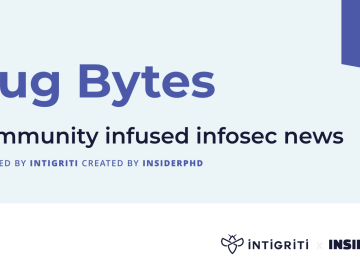I have two groups of very smart cybersecurity friends, and they see AI completely differently.
The first group thinks AI is mostly a scam, like NFT / mint grifting in crypto, and that we’re wasting billions of dollars on a bunch of vaporware.
They do things like:
- Say AI can be useful for some useful stuff, but it’s way overhyped
- Claim modern AI like Gemini 2.5 or Sonnet 4 are not even real intelligence (my friend Marcus Hutchins).

- Constantly make fun of silly mistakes that AI’s make, like counting the number of r’s in the word Strawberry (my friend Christofer Hoff)
- Saying repeatedly, in various ways, that AI is “just next-token prediction”—meaning it’s just a parlour trick, and it doesn’t actually understand or reason. And that they’ve “figured this out” because they looked into it, and people like me are deceived ourselves and are in turn deceiving others.
- Claim the entire thing is a hype train powered by billionaires and VCs trying to get rich. In other words, just another example of Capitalism ruining everything.
- Etc.
My issue with their overall arguments
The thing that bothers me about their stance is—well…a few things, actually…
- I think they’re lashing out at the wrong thing, and often times many wrong things in their pushback.
- They way they argue their points with someone like me is often quite squishy and ephemeral—on one hand saying they’re embracing AI themselves and use it every day, and then constantly making the points above that counter that stance to younger and more impressionable people.
- And most importantly—I think they’re significantly damaging the lives and careers of people they convince to think the same way about AI.
On the first point, I think they’re often pushing back on out-of-control marketing groups who are saying everything is AI, and people scamming in ways similar to crypto—of which there are definitely many.
Some are also objecting to the prospect of a human-less future, where AI does everything for us and saps the meaning and joy out of life.
Many are also against the massive amounts of AI-slop being pushed onto the world due to vibe coding and the like.
Great! Fair points! I don’t like those things either.
For the second item, they can’t have both. On the one hand they claim to be saying AI is useful and powerful and that it will be used to do some good things, but with nearly every public comment they’re bashing the entire industry and movement with obvious vitriol. It doesn’t feel internally self-consistent.
And as for the third item—of hurting people’s futures—that one really upsets me. Whenever they do the public bashing of AI and how stupid it is, or what it can’t do, or mistakes it makes, or how it’s “just next-token prediction”, they get this massive hooray from so many people.
And I think those people are worse off for it. Far worse off.
Of course, it could be that I’m the one who’s wrong, and I’m going to be the one eating blackbird in a couple of years. But I don’t think so.
And then I have my other group of friends—the ones who are extremely bullish, and excited, and afraid, and invigorated by what’s coming. In this category I want to call out Joseph Thacker specifically, as well as Jason Haddix.
In late 2022 and the first couple of months of 2023, I had very few people I could talk to about AI, and Joseph was one of those few. Just like me, he instantly not just got it, but saw a million different implications for technology and society.
And whenever we talked, it was like we were thinking the same thoughts at the same time. My best friend Jason was a bit more skeptical for a while—because he successfully avoided the crypto thing and justifiably saw a lot of parallels—but he quickly caught up and is now completely religious on it like me as well.
I now have several friends who see the AI world in a similar way, not to mention people like Dwarkesh Patel and other public people who are similarly predicting that AI will be extraordinarily powerful and transformative in the next few years.
What trips me out is how similar the haters are with the embracers. We’re all smart. We’re all in cybersecurity. We’re all successful in our field. And yet we see things so differently.
I think it’s mostly a deeper thing with outlook on life. A default-positive view of:
- CHANGE
- business
- technology’s role with humanity
- their understanding/perception of history
- whether they’re generally positive or negative about the future
- etc.
It’s hard to pin down, but when I think of the pro and con groups overall, I just see and hear more overall positivity and embrace of change from the pro group. And more negative interpretation of life in general from the con group.
When I talk to the pro group, they’re smiling. They’re excited. They’re freaked out just like me and everyone else in the group, but they’re turning that into excitement and energy instead of anxiety and anger.
And again—I’m talking about people who are bashing AI publicly—as a general movement—multiple times a week, with clear anger in their words. I’m not talking about people who are worried about AI vulnerabilities or whatever. We all share that concern.
What I recommend you do is think very carefully about your own opinions on AI, and the opinions that you’re receiving from others.
Listen for the overall outlook on life that underpins the position. Listen for their (and your) world view and see if it’s affecting your AI view as well. Is the outlook generally positive or negative? Do they generally embrace change, or do they resist it? Etc.
This isn’t a perfect heuristic, but I’d say be cautious of people who resist change—especially when that change is as inevitable as the transition from punch cards to Github. Or from steam to electricity. Although I guess that is the very question that’s up for debate.
I guess just think about one’s perception of change, and whether it’s a good thing. And try to use that as a lens for interpreting their reaction to AI.
And if you have any other ideas on what might distinguish the two groups, please let me know. I’m curious.




